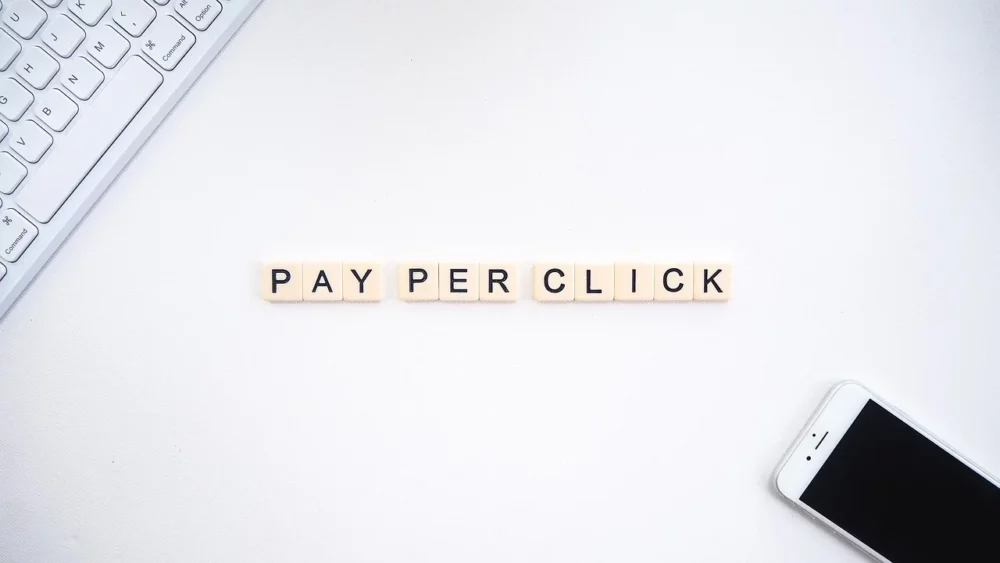Are you running a PPC campaign and curious about the cost of your keywords?
You’re not alone. Many small businesses diving into PPC advertising share the same question.
While PPC remains a top marketing channel, the pandemic has reshaped the landscape. With the shift to remote work and online shopping, competition has intensified.
A recent study by Search Engine Journal suggests that PPC ads may not yield the same results for small businesses anymore. Businesses with modest ad budgets are struggling to see positive returns.
Businesses must optimize their ad spend and enhance their PPC strategies. Understanding the effectiveness of your keywords is key to achieving this goal.
Today, we’ll delve into how you can assess the performance of your keywords in PPC campaigns.
Content Outline
How Do I find Out How Much a Keyword Costs in PPC?

The keywords you choose have a big impact on how much you spend on your PPC ads. If your PPC team picks the wrong keywords or variations, it can lead to higher costs and lower returns.
Organic keywords, which people use when searching on Google, are often more about getting information. However, PPC keywords are chosen to target people who are ready to buy. These are the folks who have done their research and are ready to make a purchase.
While some businesses may use informational keywords in their PPC campaigns, most focus on keywords that signal someone is ready to buy. These keywords tend to cost more because they target people who are closer to making a purchase.
That’s why it’s crucial to know how much each keyword costs. By identifying which keywords are too expensive or not performing well, you can improve the effectiveness of your ad campaign and save money.
Understanding PPC

PPC, or Pay-Per-Click, is like renting space for ads online. Businesses pay to have their ads shown to people searching for certain keywords. Google Ads is a popular platform for this.
Here’s how it works: First, you create an account on Google Ads. Then, you research keywords related to your business. These are the words or phrases people might type into Google when looking for what you offer. After that, you bid on those keywords.
When someone searches for one of your keywords, Google decides which ads to show based on factors like bid amount and ad quality. If someone clicks on your ad, you pay a fee—hence the name Pay-Per-Click.
Now, there are two strategies for bidding on keywords. You could bid a lot of money to ensure your ad shows up at the top of search results. But this can be expensive and might not lead to more sales.
The other option is to bid strategically, balancing cost and visibility. This helps you spend your ad budget wisely while still reaching potential customers.
Factors that determine keyword cost
Google uses a formula to calculate the cost of keywords for ads. One important factor in this calculation is the Ad Rank, which decides how well your ad competes with others.
Ad Rank is determined by multiplying the Maximum Cost Per Click (Max CPC) with the Quality Score.
Quality Score is a rating given by Google to each ad, ranging from 0 to 10. It’s based on three main factors:
1. Expected Click-Through Rate (CTR): How likely are people to click on your ad?
2. Relevance: How closely your ad matches the search query.
3. Landing Page Experience: How well does your landing page meet the needs of visitors?
Among these factors, landing page experience and CTR carry more weight, making up 39% of the Quality Score. Ad relevance accounts for 22%.
If you want to improve your Quality Score, start by checking your ad’s performance metrics. Although you can’t see the actual Quality Score, you can look at the External Quality Score in your Google Ads dashboard, which gives you a good idea. Ads with higher Quality Scores generally pay less for each keyword.
So, if you’re worried about how much keywords cost, focus on improving your ad’s CTR and tweaking your landing pages to enhance the overall user experience.
The next step is ‘How do I find out how much a keyword costs?’
Now that you understand how PPC advertising works and how you might reduce your ad spending, let’s delve into how you can figure out the costs associated with specific keywords.
Keep in mind that these figures are estimates, as the actual cost will depend on various factors we’ve discussed earlier.
Firstly, log in to your Google Ads Account dashboard and navigate to Keyword Planner, which is a free tool providing valuable insights into keyword competition. While there are other paid tools available, Keyword Planner is a good starting point.
Once you’re in Keyword Planner, you’ll see two options: “Discover new keywords” and “Get search volume and forecasts.” Choose the first option. In the search box, enter your seed keywords.
Seed keywords are crucial because they act as a reference for Google. Instead of randomly selecting keywords, brainstorm with your team to come up with relevant seed keywords based on your industry, competition, and estimated costs.
After entering the seed keywords, click “Get Results.” Keyword Planner will generate a list of related keywords. Copy the first 50 keywords from this list and proceed to the second option, “Get search volume and forecasts for your keywords.”
Paste the keyword list into this box and click “Get Results” again. You’ll then receive estimates of how much each keyword might cost and the expected traffic it could generate. This information will help you make informed decisions about which keywords to target in your PPC campaigns.
Diving deeper into keyword costs
Here’s how you can use the data you’ve gathered to estimate the cost for a keyword.
First, select a list of keywords you want to target in your PPC campaign. Make sure to choose keywords with a low cost-per-click (CPC) and reasonable search volume.
Avoid the mistake of only selecting high-volume keywords, as they can be expensive and quickly consume your ad budget. Instead, focus on long-tail keywords that have decent search volume and lower costs.
These keywords are more specific and often indicate stronger buying intent.
Once you have your list of keywords, check the Google Keyword Planner results page to see the maximum CPC and search volume for each keyword.
Then, do some research to find the average click-through rates (CTR) for PPC ads in your industry. This will help you estimate how many clicks you can expect for each keyword.
For example, let’s say you’re running a PPC campaign for a yoga studio, and you want to target the keyword “yoga classes.” The Keyword Planner shows that the max CPC for this keyword is $1.50, and the search volume is 1,000 searches per month.
If the average CTR for PPC ads in the fitness industry is 3%, you can estimate that you might receive around 30 clicks per month for this keyword.
By analyzing this data, you can better understand the potential cost and performance of each keyword in your PPC campaign, allowing you to make informed decisions to maximize your advertising budget.
Other factors that might affect your keyword cost
Here are some additional factors that can affect the cost of a keyword:
1. Seasonality and Trends: Certain keywords experience fluctuations in cost depending on seasonal trends or events. For example, keywords related to holidays, like “Halloween costumes,” may see increased costs during specific periods when demand is higher.
2. Network: You have the option to display your ads on either the Google Display Network or the Google Search Network. The Search Network typically involves higher costs because it targets users actively searching for specific information or products, indicating stronger buying intent.
3. Bidding Strategy: You can choose between automated bidding, which is goal-specific and adjusts bids based on predefined objectives, or manual bidding, where you set bids yourself. Automated bidding strategies, also known as Smart bidding, can impact costs significantly based on factors such as competition levels and your campaign goals.
FAQs
❓Can the Cost of a Keyword Change Over Time?
Yes, the cost of a keyword can change over time due to factors such as seasonal demand, changes in competition, or shifts in consumer search behavior. Regularly monitoring your PPC campaigns and adjusting your bids can help you stay competitive.
👉Is There a Minimum Amount I Must Spend on a Keyword?
No, there is no specific minimum amount you must spend on a keyword in PPC advertising. However, your bid amount influences your ad's placement, and too low a bid might not yield the desired ad position or visibility.
👀What Is a Quality Score and How Does It Affect Keyword Cost?
A quality score is a metric used by PPC platforms to rate the quality and relevance of your ads and keywords. It affects your keyword cost because a higher quality score can lead to lower costs and better ad positions. The quality score is based on factors such as ad relevance, click-through rate (CTR), and landing page quality.
✅Are There Any Free Tools to Estimate Keyword Costs for PPC Campaigns?
Yes, there are free tools available to estimate keyword costs for PPC campaigns, such as Google Ads Keyword Planner and Bing Ads Keyword Planner. These tools provide cost estimates and search volume data to help you plan your campaigns.
To wrap it up
If you’ve ever questioned, “How do I figure out the cost of a keyword?”
You’re on the right track to managing your ad budget effectively.
This guide aims to provide you with fundamental insights into understanding keyword costs. If you still have any doubts, you may leave them in the comments section below.
